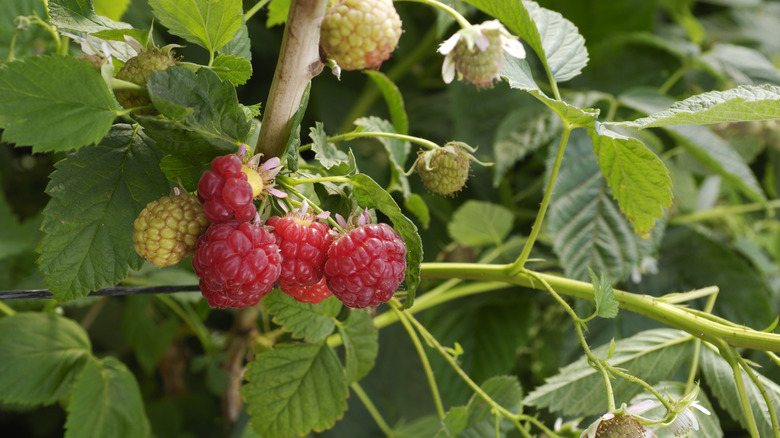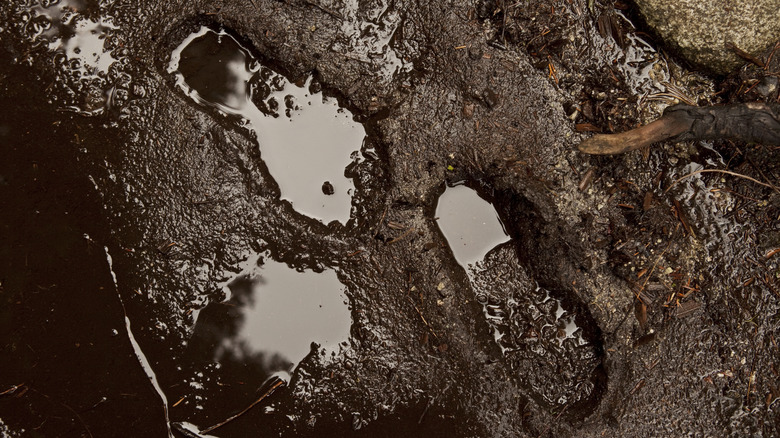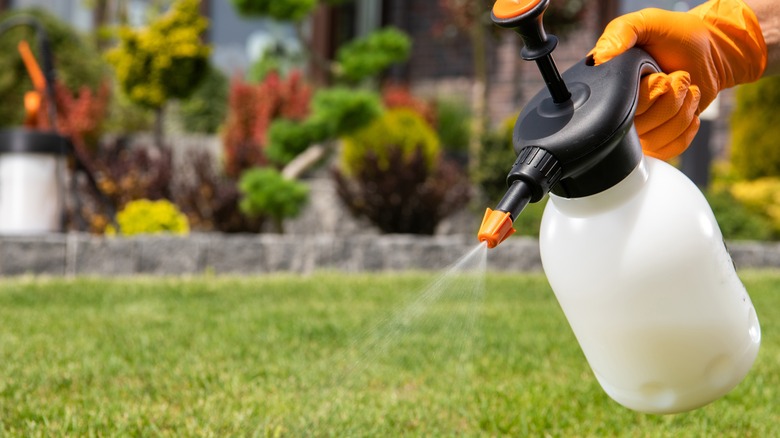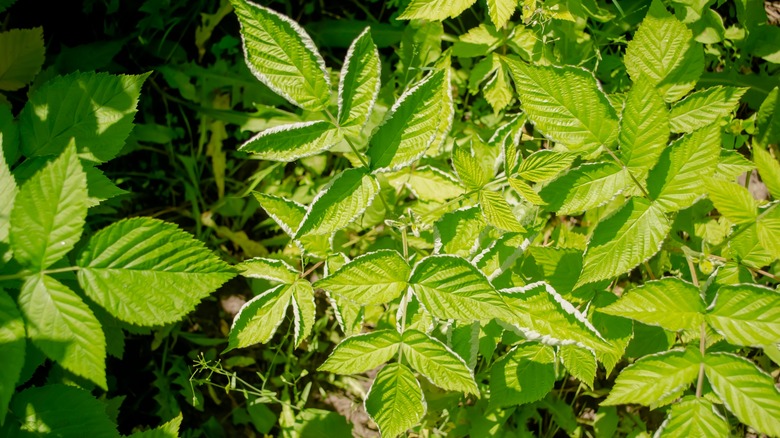Mistakes That Are Sure To Kill Your Raspberries In The Garden, According To House Digest's Master Gardener
Of the many simple joys in life, plucking a ripe raspberry off the bush and enjoying its sun-warmed freshness is among the best. Far less enjoyable is watching your raspberry bushes slowly die without being able to identify the problem. Although they are tough plants to kill, there are a few things that can bring about a swift death to these otherwise hardy plants. Placing your raspberries in the wrong soil conditions and direct or indirect contact with herbicides are two big mistakes from which these plants will not recover.
With the right environmental conditions and proper maintenance, raspberry plants can live up to 15 years. Thanks to their ability to reproduce from their roots, they can grow and spread, so young plants will continue growing even after the parent plant has reached the extent of its lifespan. You can enjoy a lifetime of raspberries by avoiding these common yet fatal mistakes.
Soggy soil
Raspberry plants are drought tolerant; once they are established, they won't adjust to soggy soil. The varieties we grow in our home gardens are cultivated from wild cultivars, which are only watered when Mother Nature decides to provide rain. This aspect of raspberries makes them easy to grow in areas that are difficult to irrigate, but make sure those areas do not hold water. Excessively wet soils lead to root rot, which will kill plants quickly.
Clay soils in low-lying areas tend to accumulate and retain moisture. If you live in an area with this kind of dense soil, you have a few options. You can amend the area you want to plant with organic matter to help water flow through, or you can mound up the soil to keep the roots above ground level. If you are not sure if your soil retains excess water, dig a hole about 6 inches deep before a heavy rain. The hole will fill up, but if it has not drained in a day or so, that spot is not ideal for plants that do not tolerate soggy soils.
Herbicide drift
Herbicide drift happens when you or a neighbor is using a spray herbicide to rid the yard of weeds. Even the slightest breeze during the application of herbicide can cause it to blow onto the leaves of plants you want to keep. If you do not use spray herbicide in your yard, the damage to your plants can be puzzling. Herbicide drift damage presents as leaves that are suddenly curled or stunted. They often take on a cup shape as the outer damaged edges shrink inward. Since herbicides are specifically intended to kill plants, this kind of contact can accidentally kill your raspberry plants.
To prevent herbicide damage when you are treating your lawn, only apply spray-on options when there is no wind — not even the slightest breeze. If you are trying to get rid of brush or small trees, you can use a paint roller or similar applicator to "paint" herbicide directly to the stumps. Things get a little more difficult if you are dealing with herbicide drift from a neighbor. You can ask them not to spray when there is a breeze, but if that doesn't work, you may need to build a solid barrier between their space and yours.
Other mistakes
Some gardening mistakes will kill your plants quickly, while others may take a little longer to slowly wear your raspberries to a weakened state. Raspberry plants require full sun, so if you plant them in a shady spot, they won't get the sunlight they need to thrive and produce fruit. A weak plant is more prone to disease and pest issues, all of which will slowly kill your plant.
Just like planting raspberries in a soggy spot in your garden will lead to root rot, so will over-watering. Unless you are experiencing extreme drought, you shouldn't need to water established raspberry plants at all. They grow deep roots to pull water and nutrients from well below the ground's surface. Those deep roots also mean that these plants generally do not require extra fertilization. Adding some compost to the soil when you plant your raspberries and another layer each spring will provide food for your plants so they can continue producing tasty fruits every year.



